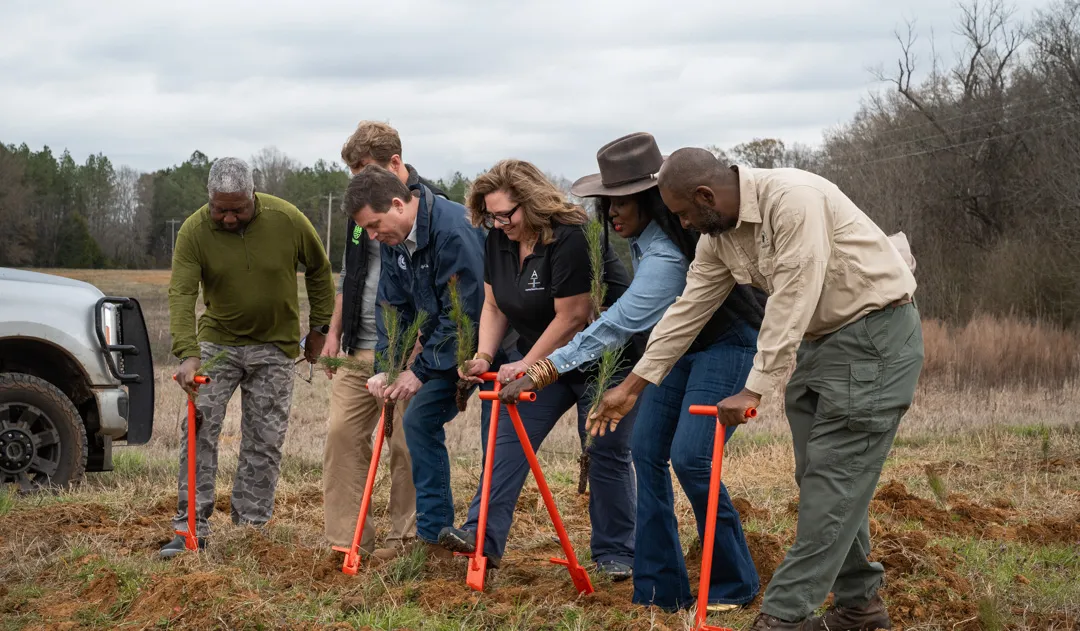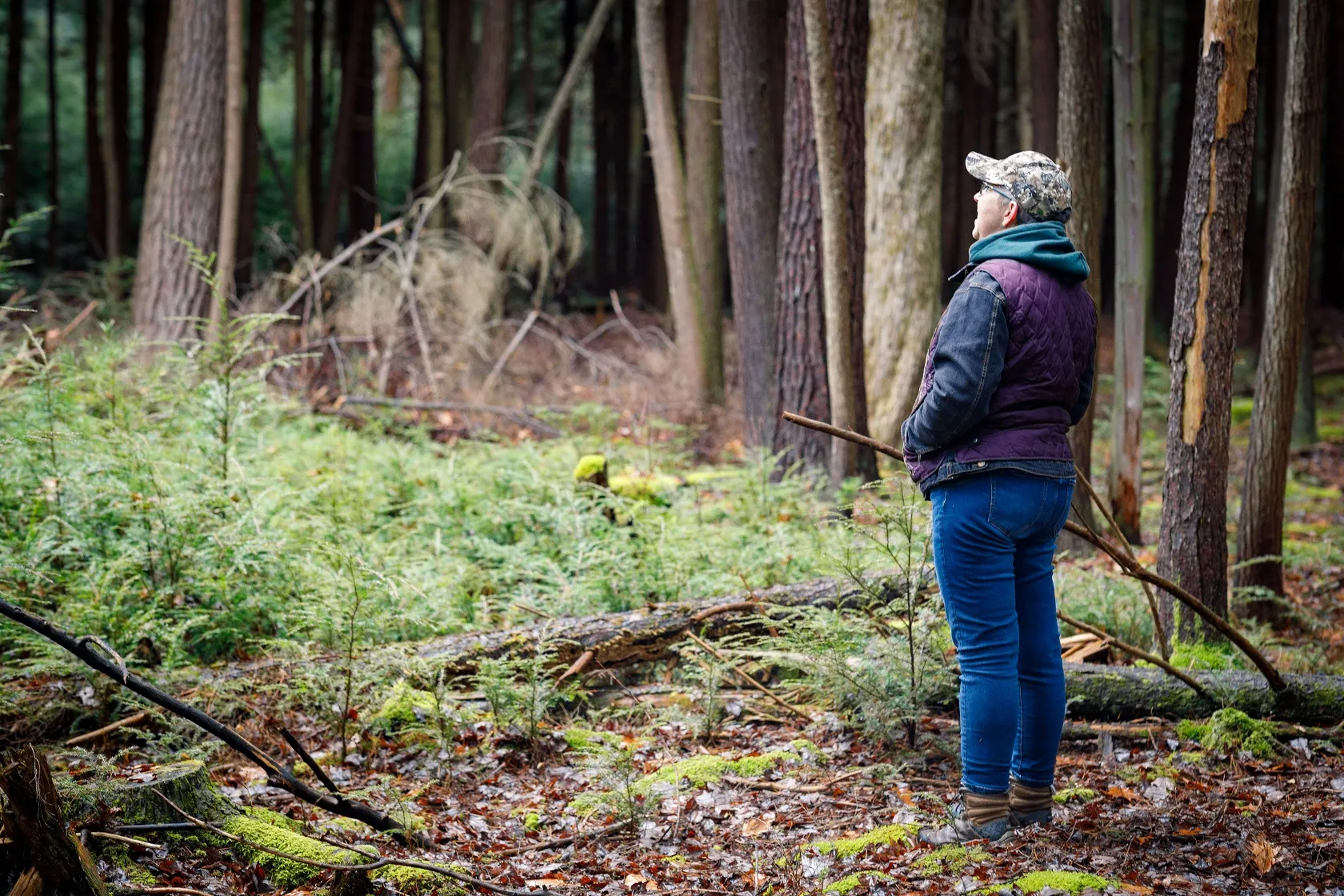Forests in the Farm Bill Coalition Commends Senate Agriculture Committee
FORESTS IN THE FARM BILL COALITION COMMENDS SENATE AGRICULTURE COMMITTEE FOR INCORPORATING IMPROVEMENTS TO PRIVATE FOREST POLICY IN DRAFT FARM BILL
Coalition seeks to continue to work with Committee to improve on introduced Farm Bill
WASHINGTON, D.C. (June 14, 2018) – The Forests in the Farm Bill Coalition (the Coalition), a collection of more than 100 diverse organizations with a shared interest in U.S. forests, in a letter today thanked the Senate Agriculture Committee for including a number of the Coalition’s private forest recommendations. These recommendations include improvements that will help private forest owners and the forest industry tackle some of today’s biggest forest challenges, and keep these forests producing clean air and water; wildlife habitat; places to hike, hunt, and fish and thousands of products that Americans use every day.
The Coalition called the Senate draft ‘an important step forward’ towards passage of a bill. It also noted that the Coalition plans to continue to work with the Committee to further improve funding authorizations and policy provisions that are important for ensuring private forests can remain healthy and to help our industry continue to secure new and expanded market opportunities for forest products.
“Collectively, 21 million family forest owners across America own and care for the largest portion of our U.S. forests. These forests play an integral role in our environment, and in sustaining America’s rural economies,” said Tom Martin, President and CEO of the American Forest Foundation. “Yet our forests are experiencing a number of pressing issues: spreading insects, disease, and invasive pests; increased catastrophic wildfire; market shifts and declines for wood products; a growing number of at-risk wildlife species that rely on these forests; as well as limited technical assistance and the rising costs of forest management. It’s important we work to pass a bill that helps forest owners tackle all of these issues.”
“The nation's 59 state and territorial foresters know that Congress has a unique opportunity with the next farm bill to bolster the health and productivity of America’s trees and forests, benefitting rural and urban communities alike. With the Senate Agriculture Committee's legislation, we are hopeful all our shared goals for the Forestry Title are within reach," said George Geissler, president of the National Association of State Foresters and Washington state forester. "In the coming days, we look forward to working with Congress to ensure the states' Forest Action Plans are highlighted in this farm bill. Collectively, these plans serve as a national roadmap for protecting and enhancing all forests—private, state, and federal—in the most collaborative, resource efficient, and scientifically proven ways we know how."
“At the core of wildlife conservation in this country are the private landowners that manage their lands and forests for the benefit of the wildlife that all American’s can enjoy. The Farm Bill represents the single largest investment in private land conservation by the Federal government. It’s critical that Congress pass a bill which will expand on the conservation success of the past by assisting landowners in achieving the conservation vision for their lands,” said Becky Humphries, CEO of the National Wild Turkey Federation.
"This bill is a win for conservation,” said Lynn Scarlett, co-chief external affairs officer at The Nature Conservancy. “The Farm Bill is the single largest federal funding source for conservation on private lands. This Senate bill focuses on broadly supported forest proposals that benefit federal, state and private forests, including extending the Collaborative Forest Landscape Restoration Program, key provisions of the Timber Innovation Act, and establishes a new Water Source Protection Program.”
Collectively, private forests account for nearly two-thirds of all forests across the U.S. Programs within the Farm Bill provide private and family forest owners, in addition to farmers, with technical and financial resources to conduct conservation practices to improve wildlife habitat, protect water quality and conserve healthy forests.
The FIFB Coalition has been in existence for more than 15 years representing all aspects of the forest sector, including forest owners, conservationists, hunters, anglers, forest industry and natural resource professionals. It is co-chaired by the American Forest Foundation, National Association of State Foresters, National Wild Turkey Federation, and The Nature Conservancy.
About the American Forest Foundation The American Forest Foundation (AFF), a forest conservation organization, works on the ground with families, partners and elected officials to promote stewardship and protect our nation’s forest heritage. A commitment to the next generation unites our nationwide network of forest owners working to keep our forests healthy and producing the clean water, wildlife habitat and sustainable wood supplies that all Americans count on from forests.
Related Articles

February 12, 2026
Fields & Forests Plants its Millionth Tree
AFF celebrated the millionth planting on recently enrolled landowner Portia Fulford’s property near Montgomery, Alabama. AFF was joined by several key partners, including the Arbor Day Foundation, the Alabama Forestry Commission, the Alabama Forestry Association, Help for Landowners, and Funga.

February 2, 2026
AFF Statement on GHG Protocol Land Sector & Removals Standard
The exclusion of forests from the LSR Standard increases the risk of sidelining one of the most mature and impactful pathways for near-term mitigation.

December 16, 2025
Family Forest Carbon Program's First Ever Credits Delivered to REI Co-op
Today, REI becomes the first buyer to receive carbon credits from the Family Forest Carbon Program (FFCP), a high-integrity forest carbon project designed for small-acreage landowners.